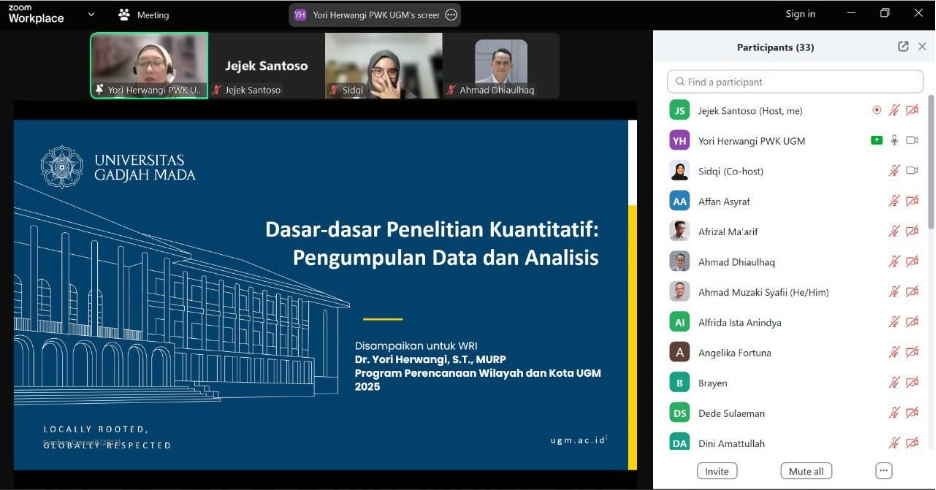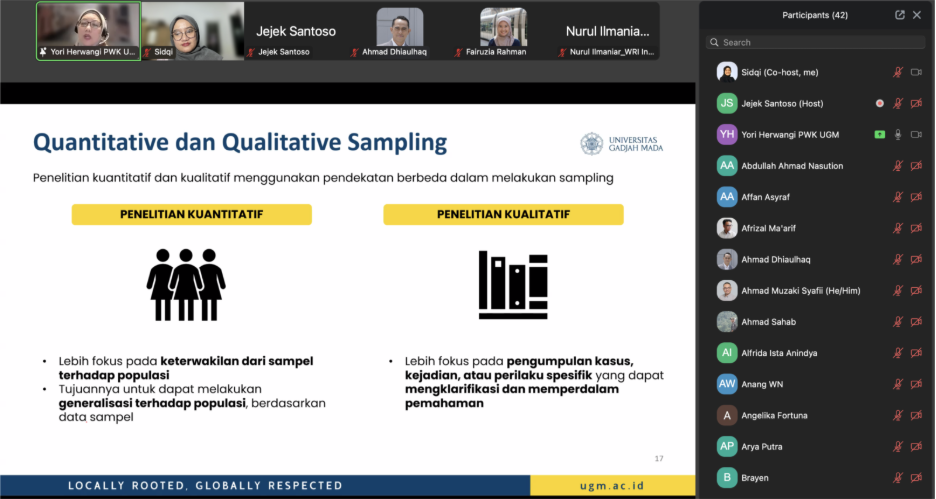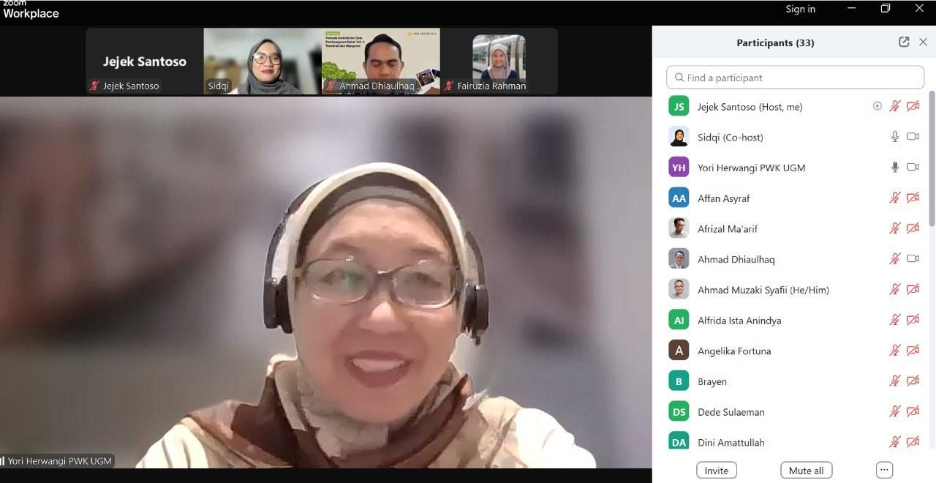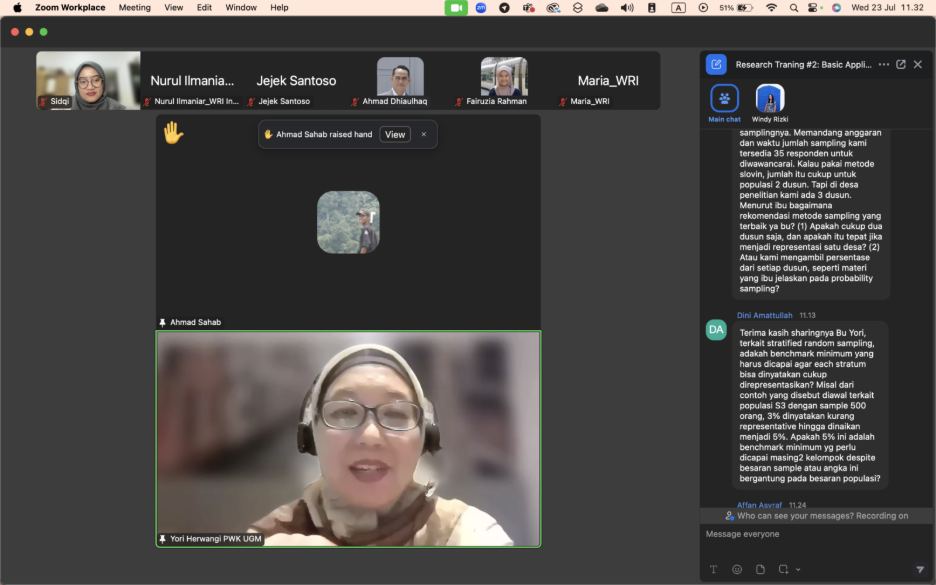July 23, 2025 – Dr. Yori Herwangi, S.T., M.URP., served as a guest speaker in a training session organized by the World Resources Institute (WRI) Indonesia, a research organization known for its approach of “Count It, Change It, and Scale It” in driving impact through data-based research. The training was held online via Zoom from 10.00 to 12.00 WIB.
In this session, Dr. Yori presented a topic titled Basic Applied Quantitative Research: Data Collection and Analysis. She began by introducing the fundamentals of quantitative, qualitative, and mixed-method research, explaining their characteristics and types. She then delved into quantitative analysis methods, covering descriptive and inferential statistics. The presentation also included explanations of univariate, bivariate, and multivariate statistics, supported by real-world examples to help participants better grasp the concepts.
The participants consisted of staff and researchers from WRI Indonesia who are involved in developing research and knowledge products aimed at influencing public policy. Dr. Yori’s presentation provided a comprehensive foundation in applied quantitative research, equipping the audience with practical tools to support sustainable development efforts.
An engaging Q&A and discussion session further deepened participants’ understanding of how to effectively apply quantitative methods in their work, ensuring that the research produced is accurate, accountable, and capable of informing impactful policy decisions.
Dr. Yori’s topic aligned closely with several Sustainable Development Goals (SDGs), including:
- SDG 11 – Sustainable Cities and Communities: supporting the development of data and research for sustainable urban policy;
- SDG 13 – Climate Action: promoting data-driven research as the basis for climate mitigation and adaptation;
- SDG 16 – Peace, Justice and Strong Institutions: strengthening research capacity to support transparent, evidence-based policymaking;
- SDG 17 – Partnerships for the Goals: encouraging collaboration between researchers and practitioners to advance data-informed knowledge for sustainable development.
This forum served as a timely reminder of the critical role applied quantitative research plays in shaping targeted, effective policies—toward creating a more equitable and sustainable urban and environmental future.
Reported by Rindi Dwi Cahyati




